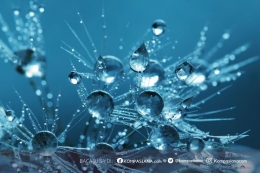By 2050, the human population is predicted to rise from 7.2 billion to 9.6 billion (UN, 2013). This implies a 33% increase in population, but as the global quality of living rises, demand for agricultural products will rise by 70% in the same time span (FAO, 2009a).
Meanwhile, the overall global cultivated land area has remained constant since 1991 (O'Mara, 2012), despite increased productivity and intensification initiatives. Livestock products account for 17% of world calorie consumption and 33% of global protein consumption, making them an important agricultural commodity for global food security (Rosegrant et al., 2009).
The cattle industry supports the livelihoods of one billion of the world's poorest people and employs nearly 1.1 billion people (Hurst et al., 2005).
The "livestock revolution" has been coined to describe the fast rise of livestock products in developing countries (Thornton, 2010; Wright et al., 2012). However, all these rising demands truthfully contribute negatively to climate change and that’s why we want to emphasize on the severity of our topic.
GHG emissions, which result in atmospheric warming, are the primary cause of global climate change (IPCC, 2013). According to Gerber et al. (2013), the cattle sector generates 14.5 percent of global GHG emissions, which might lead to increased land degradation, air and water pollution, and biodiversity loss (Bellarby et al., 2013; Reynolds et al., 2010; Steinfeld et al., 2006; Thornton and Gerber, 2010).
Simultaneously, climate change will have an impact on livestock production due to competition for natural resources, feed quantity and quality, livestock illnesses, heat stress, and biodiversity loss, while demand for livestock products is anticipated to increase by 100% by the mid-twentieth century (Garnett, 2009).
As a result, maintaining a balance between productivity, household food security, and environmental preservation is a challenge (Wright et al., 2012). Understanding the relationship of climate change and agricultural productivity is generating a lot of interest, which is driving a lot of research (Aydinalp and Cresser, 2008).
Agriculture is not something that comes naturally to us as a species. People lived in cultures centered on hunting and gathering throughout much of human history.
Although the earliest signs of agriculture date back to around 12,000 years ago, agriculture has taken on an entirely new face since the Industrial Revolution, with intensive practices such as concentrated animal feeding operations (CAFOs) creating truly heartbreaking conditions for farmworkers, animals, and surrounding communities.
Agriculture, dubbed humanity's worst mistake by some because of the resulting hard labour, poor nourishment, and social injustice, has now presented the world with a new dilemma: environmental degradation on magnitude that can no longer be ignored.
CAFOs generate massive volumes of excrement, which collects in gigantic open-air lagoons that can be breached by severe weather or slowly seep into groundwater. CAFO water pollution can generate algal blooms, which can wreak havoc on entire marine ecosystems. CAFOs pollute the air by vaporizing manure, which sends poisonous wafts through the air to surrounding towns.







